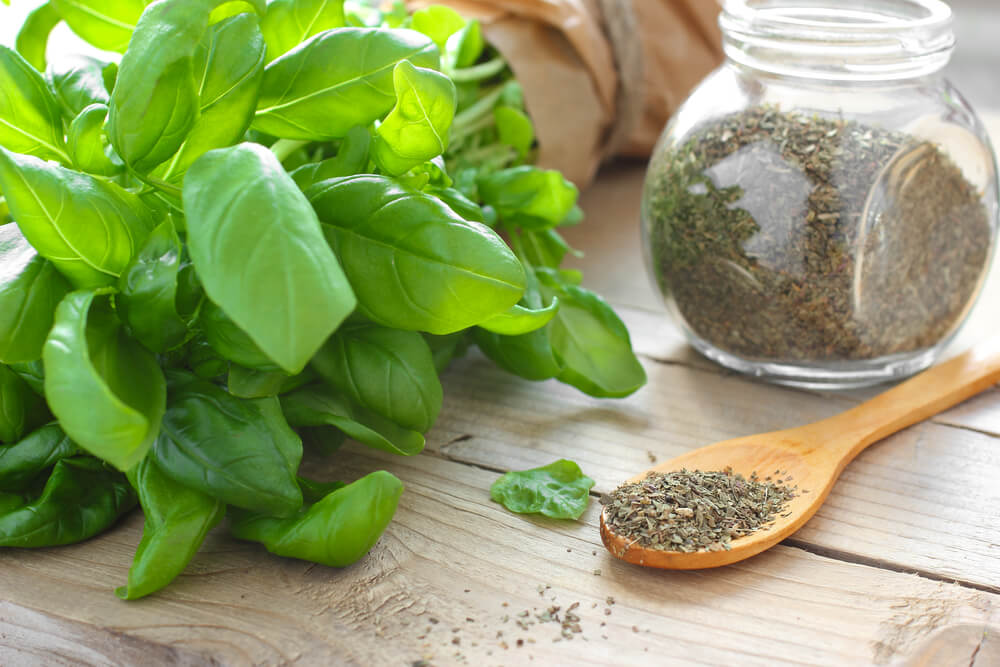The Healthy benefits of Tulsi are numerous. It is an adaptogen, anti-depressant, immunity booster, and is known to help lower uric acid. However, not all of these benefits are immediately apparent. This article explores these benefits in more detail. So, let’s start by examining the most common ways Tulsi helps our body. If you’ve heard of this herb, you probably have some questions.
Tulsi is an adaptogen
The herb Tulsi has a long history. It is a potent adaptogen, which means it can help your body cope with stress and increase your overall health. Many benefits are associated with Tulsi, but the most notable one is that it can reduce stress. Stress is a natural part of life, but chronic stress is particularly hard on your body. Tulsi increases bone density and strengthens fragile bones, and its vitamin K content helps the body absorb calcium.
This sacred plant has a long history of medicinal use and is revered in India. Its leaves have a distinctive aroma and taste, combining mint, licorice, pepper, and clove with herbal green notes. In addition to being a natural immune system booster, Tulsi has many other benefits, including balancing your hormones, which can contribute to stress. It is also an effective remedy for respiratory problems and sore throats.
[ Note: Buy Fildena 200 pills at online in USA ]
It is an anti-depressant
The herb tulsi may have anti-depressant properties because of its adaptogen effect, which addresses physical, metabolic, and chemical stressors. Its pharmacological actions counteract metabolic and physical stress, maintain hormone levels naturally, and promote resilience. The plant’s anxiolytic and memory-boosting properties help counter psychological stress. It is a natural anti-depressant.
Its calming effect promotes a more peaceful disposition and clear thought. This plant also has cognitive-enhancing properties. Tulsi differs from caffeine-containing beverages, which increase arousal levels and may cause physical agitation. Because it does not produce physical dependence, tulsi can be taken on a regular basis without experiencing any withdrawal effects. Tulsi is a great herb for those suffering from depression.
Tulsi benefits include improved mental health and mental clarity, reduced blood pressure, and relief from upper and lower respiratory tract infections. It also improves brain function and normalizes external contributors. It contains flavonoids and essential fatty acids, including oleanolic acid, ursolic acid, linalool, and carvacrol, among others. Tulsi is also effective against bacterial infections.
It is an immunity booster
Traditionally, tulsi has been used to boost the immune system. It is a common herb in the homes of many people in India. Taking tulsi can help you manage any existing infections or strengthen your immunity. But if you want to try something new, you might consider mixing Tulsi with honey for even greater health benefits. Tulsi honey is made from the nectar of the tulsi herb and can be a delicious way to get the benefits of the plant. [Fildena 100 mg are cure with ED problem ].
The plant contains vitamin A, C and K, as well as minerals. It contains fibre, protein, and zinc. Tulsi can help you fight off illnesses, such as a common cold, cough, and flu. It can also relieve symptoms like a headache and sore throat. Other spices like ginger and pepper contain chemical compounds that can kill germs and increase your immune system. The active compound in turmeric is known to reduce inflammation, which in turn helps to boost immunity.
It helps reduce uric acid levels
Among other herbs, Tulsi helps reduce uric acids in the bloodstream. This herb is often taken as a tea, and its leaves can be eaten as a food. Its benefits are similar to those of a gout tea. This herb can reduce uric acid levels in the bloodstream by reducing the production of uric acid in the kidneys.
Tulsi’s leaf is the most commonly used part of the plant, and it contains several bioactive compounds including eugenol, ursolic acid, b-caryophyllene, linalool, and 1,8-cineole. In studies, eugenol was the only bioactive metabolite found common in all three tulsi varieties. It inhibits both the binding of glucose to serum albumin, and the conversion of complex carbohydrates to glucose.
It helps relieve headaches
Tulsi is an effective herb for treating migraines, sinus headaches, and colds. Because of its decongestant and pain-relieving properties, it can be used topically as well as eaten. Boiling tulsi leaves in water and straining the leaves into a tea can be a good remedy for a headache. Another way to use tulsi to relieve headaches is by making a cooling paste from the leaves.
Basil is a great herb for reducing pain and is a natural analgesic. In addition to its aroma, basil oil has many beneficial properties for the body. The oils it contains can be applied topically or massaged into pain centers to reduce pain. Inhaling the steam of basil leaves is another effective remedy for headaches. But be careful: if you choose to inhale the steam, be sure it is not freshly boiled! Freshly boiled basil may burn your face. But even if it is not harmful, it can reduce the effects of a headache.
Tulsi is an herb
Tulsi has long been used to treat sore throat, cold, and cough. Its soothing effects can be attributed to the antibacterial and anti-inflammatory properties of tulsi leaves. In ancient times, the tea made from tulsi leaves was given to sufferers of sore throats as a soothing drink. Tulsi leaves are also known to be adaptogens, which counteracts the effects of different types of stress on the body.
Tulsi is an herb with thick, succulent leaves that is easy to grow and will survive in cold weather. In addition to drinking the leaves of Tulsi, its leaves can be boiled with water and added to a hot cup of tea. Tulsi can also be chewed for cold relief. While chewing tulsi leaves is useful, this can be difficult for the elderly. It can also be made into a tea with ginger and cardamom pods. When made into a tea, the leaves can also be flavored with cardamom or peppercorns.
It helps fight infection related to the skin
The essential oil from Tulsi contains numerous bioactive compounds, including camphor and eucalyptol. The oil has been shown to have a strong antibacterial effect on a variety of bacteria, including MRSA and E. coli. The plant’s essential oil is a popular topical application, but it is also effective as a wound dressing. The following are some of the benefits of Tulsi.
Tulsi is a potent antiseptic and an effective natural medicine. It has antibacterial, anti-fungal, and antiseptic properties that keep your skin healthy and free from infection. Tulsi is a powerful herb with many uses, including relieving the symptoms of insect bites, itching, and skin rashes. Listed below are just a few benefits of Tulsi for the skin.
It helps prevent clots in arteries
Tulsi is a popular remedy for heart disease, and recent studies have shown that it can reduce the risk of clots. It contains a substance called estragol, which causes uterine contractions. If this compound isn’t removed from the body, it may lead to premature birth and other complications. Tulsi is an amazing herb that provides numerous health benefits.
Blood clotting occurs when the blood changes from a liquid to a semi-solid state. The clot then sticks to an organ, such as the heart, and prevents blood from flowing. Clots can occur anywhere in the body, and the size and location of each is different. A clot in the arteries needs immediate medical attention, while a clot in the veins can have serious consequences, including stroke.
It improves hair growth
In Ayurveda, tulsi has a specific place, and is found in almost every household. Its medicinal properties include its deep cleansing qualities and antimicrobial properties, which are beneficial to your hair. As an added bonus, tulsi leaves can be used to make a face mask. Its powder has numerous beauty benefits, and is great for those who have dry or damaged hair.
Basil oil is also a good ingredient to use on your scalp. Basil increases blood circulation to the scalp, thereby improving the health of your hair. It also reduces itchiness and dandruff. Tulsi improves hair growth and helps control four different types of dandruff. This herb also improves scalp blood circulation, which leads to optimal nourishment for your hair follicles and in turn, promotes new hair growth.


